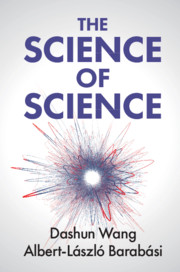Book contents
- The Science of Science
- The Science of Science
- Copyright page
- Dedication
- Contents
- Acknowledgements
- Introduction
- Part I The Science of Career
- 1 Productivity of a Scientist
- 2 The h-Index
- 3 The Matthew Effect
- 4 Age and Scientific Achievement
- 5 Random Impact Rule
- 6 The Q-Factor
- 7 Hot Streaks
- Part II The Science of Collaboration
- Part III The Science of Impact
- Part IV Outlook
- Book part
- References
- Index
4 - Age and Scientific Achievement
from Part I - The Science of Career
Published online by Cambridge University Press: 07 February 2021
- The Science of Science
- The Science of Science
- Copyright page
- Dedication
- Contents
- Acknowledgements
- Introduction
- Part I The Science of Career
- 1 Productivity of a Scientist
- 2 The h-Index
- 3 The Matthew Effect
- 4 Age and Scientific Achievement
- 5 Random Impact Rule
- 6 The Q-Factor
- 7 Hot Streaks
- Part II The Science of Collaboration
- Part III The Science of Impact
- Part IV Outlook
- Book part
- References
- Index
Summary
We begin by showing that age-specific patterns affect the allocation of funding in science. We then ask if there are age specific patterns that dictate when a scientist does her best work, and show that there are universal trends in the age distribution of great innovation. We offer possible explanations as to why these patterns occur. One explanation, which helps explain why scientists typically reach peak performance in middle age, is the “burden of knowledge” theory. Yet this explanation doesn’t account for the discipline-specific trends in age at peak performance that complicate the picture, which may be accounted for by the type of work produced. Research shows that there are two kinds of innovators–conceptual and experimental–and that each has a different peak. Experimental innovators, who accumulate knowledge through experience, tend to peak later. Conceptual innovators, who apply abstract principles, tend to peak earlier. We end by discussing Planck’s principle, which posits that young and old scientists have differing affinities for accepting new ideas.
Keywords
- Type
- Chapter
- Information
- The Science of Science , pp. 39 - 50Publisher: Cambridge University PressPrint publication year: 2021



